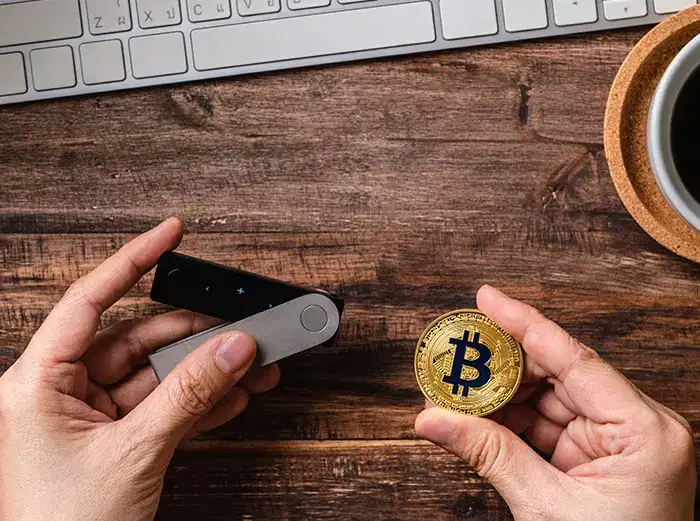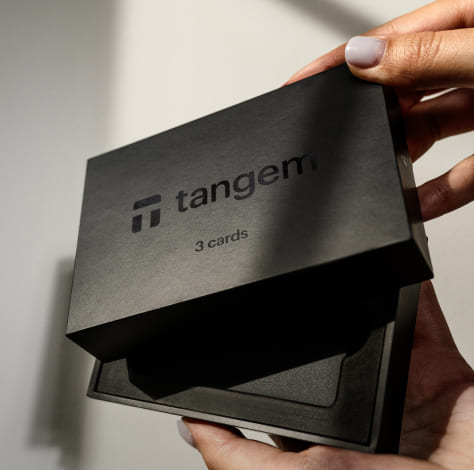
Hardware wallets are necessary for securely managing your cryptocurrency while traveling. As these devices provide robust protection against theft and unauthorized access, proper understanding of their vulnerabilities at border crossings is vital. Travelers face risks such as confiscation or coercion from customs officials; thus, implementing strategies like disabling Bluetooth and using passphrase protection can enhance safety. By taking these precautions, you can enjoy a stress-free journey while keeping your digital assets safe.
Understanding Hardware Wallets
Before delving into the complexities of traveling with cryptocurrency, it is imperative to understand the nature and functionality of hardware wallets. These devices are designed to securely store your private keys, which are necessary for accessing and managing your digital assets. Unlike software wallets that are connected to the internet and can be vulnerable to cyberattacks, hardware wallets provide an offline means of storage, safeguarding your crypto even in the face of online threats.
What is a Hardware Wallet?
One of the primary features of a hardware wallet is its physical form, often resembling a USB drive. This tangible device allows users to interact with their cryptocurrencies while ensuring that sensitive data remains isolated from potential hacks. When you want to make a transaction, you connect the hardware wallet to a computer or mobile device, which facilitates the secure signing of transactions without exposing your private keys to the internet.
Benefits of Using a Hardware Wallet
Understanding the advantages of hardware wallets is imperative for anyone investing in cryptocurrency. These devices provide enhanced security by storing crypto assets offline, significantly minimizing the risk of hacking attempts. Additionally, hardware wallets are user-friendly and support multiple cryptocurrencies, enabling investors to manage diverse portfolios efficiently. Their robust backup features also mean that even if the device is lost or damaged, access to your assets can usually be restored using a recovery seed.
And by utilizing a hardware wallet, you gain an additional layer of protection against phishing attacks and malware threats that can target software wallets. The physical nature of hardware wallets also allows users to have complete control over their funds, ensuring that private keys are never exposed online, thus greatly enhancing overall security during transactions. This makes hardware wallets a highly appealing option for anyone looking to secure their cryptocurrency investments, especially while traveling.
Preparing for Travel
There’s no doubt that traveling with cryptocurrency requires careful planning. You must understand the regulations of your destination and prepare your hardware wallet accordingly. By knowing what to expect and how to protect your assets, you can enjoy your journey while keeping your crypto secure.
There’s a key measure to take before you travel: securing your wallet and its access credentials. Ensure that your hardware wallet is updated with the latest firmware and security patches. This will help guard against potential vulnerabilities during your travels.
Backing Up Your Wallet
An crucial step in your travel preparations is to back up your wallet. Creating a backup ensures that even if your hardware wallet is lost or damaged, you can still recover your funds. Store the backup securely in a different location from your wallet to prevent any loss from theft or misplacement.
An effective method is to write down your recovery seed phrase on paper and keep it in a secure place, such as a safe or a safety deposit box. Avoid digital backups that could be accessed by hackers, as losing your seed phrase can mean losing your entire investment. It’s advisable to check your backup before you take off to make sure everything is functional.
Security Precautions Before Departure
Precautions should be at the forefront of your mind prior to your journey. Evaluate your digital and physical security by ensuring that your devices are free from malware and tracking software. It’s wise to limit access to sensitive information, keeping it locked down and encrypted during travel.
Backing up all important files, including any sensitive data related to your crypto, is a proactive measure. Opt for a secure password manager to protect login details, and use two-factor authentication whenever possible. Understand the risks associated with public Wi-Fi and avoid accessing your crypto accounts through unsecured networks. Being vigilant can significantly enhance your travel security and minimize potential threats to your crypto assets.
Crossing Borders with Your Wallet
While traveling with a hardware wallet, it’s important to understand the potential challenges that may arise at international borders. Many customs officials may not be familiar with cryptocurrency, leading to questions about the nature of your wallet and the digital assets it holds. Ensuring that your wallet is properly secured and that you have robust security protocols in place can help mitigate any risks associated with crossing borders.
While your hardware wallet is generally safe for travel, customs and security checks can introduce uncertainty. Airport security may require you to remove electronic devices from your bag, including wallets, which could potentially lead to scrutiny. Additionally, some countries have specific regulations regarding the import of cryptocurrency, so knowing these rules is vital.
Customs and Security Checks
With heightened security concerns globally, customs inspections may include both baggage and electronic devices. Make sure that you can explain what a hardware wallet is and how it functions, as well as any potential cryptocurrency amounts. Keeping your wallet in a secure compartment and having backup phrases or recovery options stored separately may also be beneficial in case it is lost or confiscated.
With cryptocurrencies facing various regulatory landscapes, it’s important to be aware of how different countries view digital assets. Some jurisdictions may require you to declare your wallet during customs, while others may not have clear policies. Familiarizing yourself with the local laws and requirements can help you avoid potential legal issues.
Declarations and Legal Considerations
This situation emphasizes the importance of being informed before you travel. Some countries may impose restrictions or even bans on the amount of cryptocurrency you can bring in or out, leading to significant legal implications if not adhered to. Always ensure you have the necessary documentation regarding any amounts in your wallet, such as transaction records or proof of ownership, to substantiate your claims during customs inspections.
Protecting Your Wallet During Travel
Keep your hardware wallet secure by taking necessary precautions that safeguard your cryptocurrency from potential threats. Carry your wallet in an inner pocket, and avoid displaying it in public spaces. Consider using a durable, inconspicuous case that can blend in with everyday items to reduce the risk of theft.
Physical Security Measures
An effective way to protect your wallet during travel is by employing various physical security measures. Utilize anti-theft bags or pouches designed to shield your belongings from unauthorized access. Additionally, always be aware of your surroundings and avoid situations that may expose your wallet to theft or loss.
Using Encryption and Passphrases
About encrypting your wallet and using strong passphrases, these security measures provide an extra layer of protection for your funds. By encrypting your wallet, you ensure that even if someone gains access to it, they cannot retrieve your private keys without the correct passphrase. Choose a unique and complex passphrase that combines letters, numbers, and symbols to enhance security further.
Security is the backbone of managing cryptocurrency while traveling. By using encryption and employing a unique passphrase, you mitigate the risk of unauthorized access to your wallet. In case of loss or theft, these security measures help ensure that your funds remain protected from potential threats, allowing you to travel with peace of mind.
Cybersecurity While Traveling
Now more than ever, individuals need to be vigilant when it comes to cybersecurity during travel. The risk of cyber-attacks increases significantly in unfamiliar environments, which makes it important to stay informed about potential threats and how to mitigate them. Cybercriminals often exploit travelers, taking advantage of lax security practices and unsecured connections while on the move. To ensure the safety of your digital assets, it’s important to adopt a proactive approach to your cybersecurity strategy.
Public Wi-Fi Risks
Between airports, coffee shops, and hotels, public Wi-Fi networks are ubiquitous and convenient for travelers. However, these networks are often insecure, exposing users to various threats, including data interception and unauthorized access to personal information. Hackers can set up rogue hotspots that mimic legitimate networks, tricking unsuspecting travelers into connecting and leading to serious data breaches.
Safe Practices for Online Transactions
WiFi security becomes even more important when conducting online transactions. Using public Wi-Fi for financial activities can be highly risky; therefore, it is advisable to avoid such actions altogether unless absolutely necessary. If you must access sensitive accounts, employ a trusted VPN to encrypt your connection and protect your data from prying eyes. Additionally, ensure that websites are secured with HTTPS to further safeguard any information shared during transactions.
Due to the inherent risks associated with online transactions, practicing vigilance is key. Always use strong, unique passwords for different accounts and enable two-factor authentication when available. It is also wise to regularly monitor your account statements for any unauthorized activity. By adhering to these standards and initiating transactions only when connected to secure, private networks, you can significantly reduce the risk of falling victim to cybercrime while traveling.
Emergency Steps if Your Wallet is Compromised
After a security incident involving your hardware wallet, immediate action is vital. Start by disconnecting the device from any network connections and secure it in a safe location. Check for signs of tampering, such as an altered USB port or unfamiliar software prompts, which can indicate unauthorized access. If suspicious activity is detected, promptly assess your transaction history for unauthorized transfers and report any discrepancies immediately.
Identifying Compromise
Above all, understanding the signs of a compromised wallet is vital. Look for unexpected notifications or alerts regarding account activity that you did not initiate. Additionally, monitor your public and private key integrity; signs of interception could include messages asking for sensitive information or repeated access attempts from unfamiliar devices.
Recovery and Mitigation Strategies
Among the steps to recover your assets after detecting a compromise are backing up your seed phrase and moving your cryptocurrency to a new, secure wallet. Utilize a different device to perform this action to avoid further contamination from the compromised wallet. Always ensure you’re using verified software and check for recent security updates to strengthen your defenses.
Another method to enhance your security includes enabling two-factor authentication on all related accounts. Regularly updating passwords and using complex phrases will help further reduce vulnerability. Consider transferring your funds to a trusted exchange or a newly generated wallet that employs enhanced security measures. It’s also wise to stay informed on security best practices to prevent future incidents.
Final Words
With this in mind, ensuring the security of your hardware wallet while traveling across borders requires careful planning and precautions. Always keep your device in a secure place, avoid discussing your crypto holdings in public, and be aware of the laws regarding cryptocurrency in your destination country. Prioritize using reliable transportation methods and minimize the exposure of your hardware wallet during your travels.
Additionally, consider backing up your wallet securely and being prepared to access your assets through alternative means if necessary. By taking these proactive steps, you can confidently navigate cross-border travel with your cryptocurrency while minimizing the risks associated with hardware wallet security.







